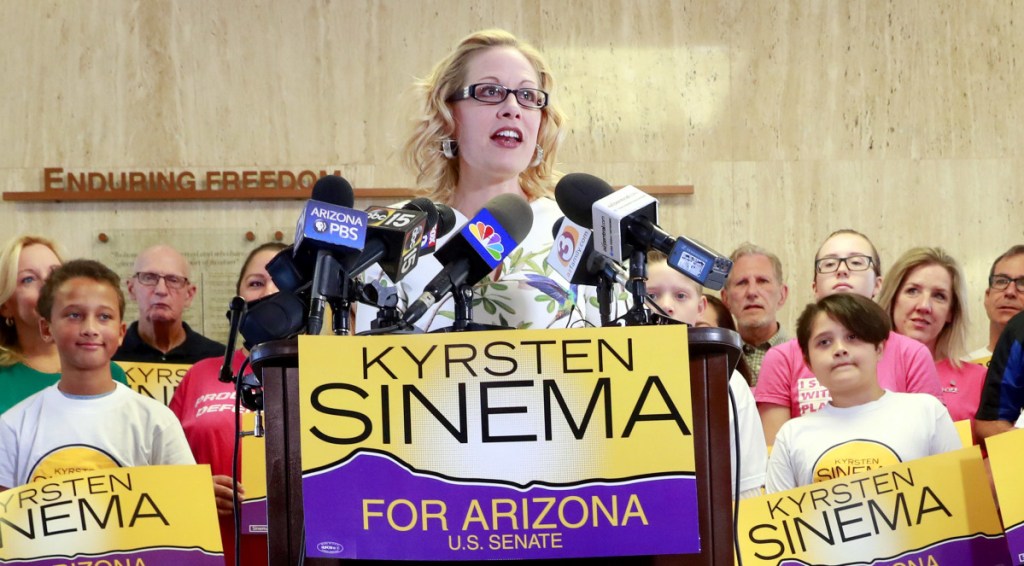MADISON, Wisconsin — A record number of women are running for the U.S. Senate this year, and their stiff challenge is winning enough seats to dramatically diversify a chamber long dominated by men.
Many face uphill campaigns and two Democratic incumbents in particular among the 23 women in the Senate are seen as politically vulnerable in seeking re-election in November.
When GOP state Sen. Leah Vukmir of Wisconsin filed petitions Wednesday, it meant 41 Republican and Democratic women had qualified to run for the Senate – the most ever, topping the 40 in 2016. That’s according to an Associated Press analysis of data collected by the Center for American Women and Politics at Rutgers University and candidate qualifying information released by states.
Vukmir hopes to be her party’s nominee in the November race against Democratic Sen. Tammy Baldwin. The incumbent became No. 42 when she filed her paperwork later Wednesday afternoon to seek re-election to her seat, one of 19 that women are vying for this year.
“I understand it’s a historic number, so I’m excited about that,” Vukmir told reporters. “But I’ve always said, I’ve never looked at that as an issue as I’ve been an elected official.”
While that total expected to climb in coming weeks as other states reach filing deadlines, the overall impact at the ballot box could prove limited.
“It’s not going to be a huge gain,” said Dianne Bystrom, director of the Carrie Chapman Catt Center for Women and Politics at Iowa State University. But, she said, the Senate “is a body more open to incremental changes.”
For more than two centuries, men have dominated the Senate, which has seated only 52 female members in its history. Adding women or even holding the line can mean maintaining pressure on the Senate to act on issues important to female voters, such as health care and family economic policies.
A potent force behind the surge in female participation is the #MeToo movement, ignited by allegations of sexual misconduct by men in entertainment, politics, journalism and other sectors. There’s also the criticism of President Trump’s policies and his alleged conduct toward women.
“All of these sparks are working in different ways, and one of the giant sparks has been the (hash)MeToo movement,” said former Democratic Sen. Barbara Boxer of California, among four women elected in 1992. That tripled their Senate ranks, due in part, she said, to a backlash by female voters against the confirmation of Clarence Thomas to the Supreme Court. He had been accused of sexual harassment.
In Arizona, odds are a woman will succeed retiring Republican Sen. Jeff Flake. Six women are running in the August primaries.
Rep. Kyrsten Sinema, D-Ariz., who filed her candidate petitions Tuesday, demurred when asked about the role that gender plays in her candidacy. “For me, my public service has never been about my gender or really any other characteristic,” Sinema told The Associated Press.
In a recent ad, Sinema credits her single mother for shepherding her family through tough times, echoing themes of family security, a priority for some female voters.
Send questions/comments to the editors.



Success. Please wait for the page to reload. If the page does not reload within 5 seconds, please refresh the page.
Enter your email and password to access comments.
Hi, to comment on stories you must . This profile is in addition to your subscription and website login.
Already have a commenting profile? .
Invalid username/password.
Please check your email to confirm and complete your registration.
Only subscribers are eligible to post comments. Please subscribe or login first for digital access. Here’s why.
Use the form below to reset your password. When you've submitted your account email, we will send an email with a reset code.